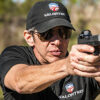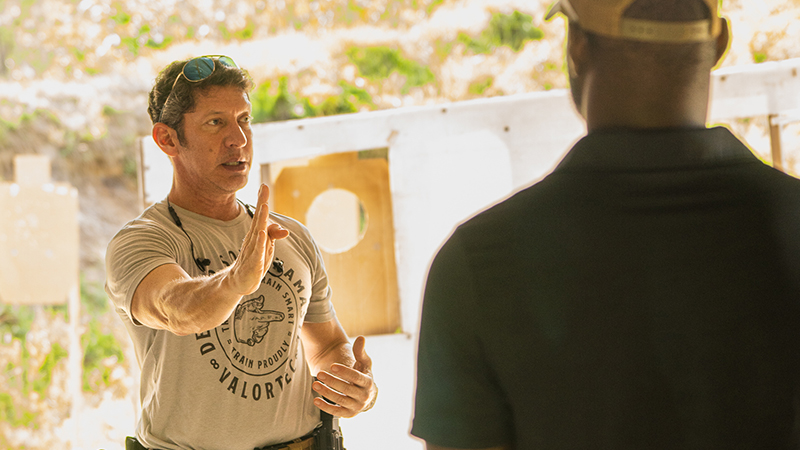“Ensuring Safety for Florida Places of Worship: Valortec’s Guide”
Introduction: Acts of violence targeting churches and synagogues have become a significant concern in the United States. To protect your house of worship, Valortec offers tailored security training and solutions. In this guide, we’ll explain the steps to build a security team while focusing on Florida.
Understanding the Threats: To begin, it’s crucial to understand the threats and vulnerabilities specific to your church or synagogue. Consider structural weaknesses, intelligence reports, and the current political climate. Local, state, and federal law enforcement should be consulted to stay informed about ongoing threats.
Valortec’s Security Program: Valortec offers a security program tailored to the needs of your place of worship. We’ll conduct a vulnerability assessment to understand the risks you may face. We’ll help you build readiness and resilience within your community, ensuring that your house of worship can respond effectively in emergencies. We will also design a physical security system to protect different areas of your place of worship, while respecting their individual purposes. Additionally, we provide training and assessments for community protection teams and our staff qualifications are recognized by the Department of Homeland Security, which can help you obtain federal security grants.
Understanding Your Security Needs: The first step in addressing your security needs is understanding the specific threats your church or synagogue may face. This includes examining any structural vulnerabilities, staying informed about intelligence reports, and considering the current political climate. It’s important to understand the layout of your place of worship, the locations of entrances and exits, and potential choke points for entry or escape.
Collaborating with Law Enforcement: Engaging with local, state, and federal law enforcement is vital. They can provide insights into current threats. It’s important to note that there have been instances where law enforcement possessed intelligence about potential attackers but failed to share it. Staying in contact with law enforcement agencies can help prevent such oversights.
Monitoring the News Media: The current political climate and news media reports can offer hints about potential threats and inspire copy-cat attacks. Effective security training for places of worship involves staying up-to-date with the latest threats and security methods.
Finding the Right Team: The first step is identifying potential threats. Once we understand the potential risks, we can put together a security team. The size of the team will depend on the size of your place of worship, the number of attendees, entrances and exits, and the need for a team that can work together smoothly.
Evaluating Team Members: To make sure we have the right people for the job, we use psychometric tests to identify traits necessary for working under pressure and as part of a team. We also assess team members physically, looking at their ability to run, sprint, coordinate with others, and handle tasks like carrying injured individuals. An effective security team should be able to perform these tasks reliably.
Choosing the Right Equipment: Ensuring your security team is well-equipped is essential. The choice of weapons and gear depends on factors like the size of your place of worship, the team’s capabilities, and their level of training. For instance, a larger church might benefit from having a sharpshooter in an elevated position, providing clear visibility of entrances and the worship hall.
Uniformed and Plainclothes Team Members: Team members need to be both uniformed, serving as a visible deterrent, and plainclothes to maintain an element of surprise. Each member should carry a 9mm or larger caliber handgun with hollow point ammunition to prevent shots from passing through individuals. Depending on the climate, some may be able to conceal pistol caliber carbines/sub guns like an MP5 or UZI. In larger places of worship, hidden compartments can hold rifles of 5.56mm caliber or higher for more complex scenarios.
Selecting the Right Gear: Each team member must have the appropriate gear, including holsters, medical supplies, body armor, radios, and more. Uniformed security members should have at least level II retention holsters. Plainclothes members should use concealed kydex holsters positioned for quick and easy access.
Medical Gear: Medical equipment is a must. Team members should carry an Individual First Aid Kit (IFAK) that includes items like a CAT tourniquet, Israeli bandages, quick clot, medical tape, and chest seals. For larger places of worship, a comprehensive bleed control kit should be easily accessible and placed in multiple locations.
Body Armor: Uniformed security members should wear body armor, which is crucial for their safety. It increases their chances of survival. Level IIIA body armor is the minimum recommended. For plainclothes members, soft body armor may be a better choice to maintain concealment.
Communication is Key: Effective communication is essential, especially in larger facilities. Team members must be able to communicate with each other to ensure proper command and control. Radios with earpieces should be used to maintain clear lines of communication while keeping their hands free.
Why Training Matters: Training is crucial to keep everyone safe and to prevent accidents. Your security team needs to be well-prepared to identify and respond to potential threats.
Identifying Threats: The first step is to systematically learn how to spot potential threats. This involves understanding how a potential attacker might behave and recognizing key characteristics.
Firearm Training: Proper firearm training is a must. Your church or synagogue security team must be highly skilled in handling firearms. They need to:
- Accurately engage head-sized threats from 25 yards with a handgun.
- Precisely engage head-sized threats beyond 25 yards with a rifle.
- Understand and perform 2 and 3-person tactical maneuvers.
- Shoot accurately while on the move.
- Move and shoot effectively in a crowd.
- Handle firearms and perform tasks even if injured.
- Carry out these skills under physical and mental stress.
- Pass regular qualifications, typically monthly or quarterly.
Close-Quarters Skills: Many security situations require hands-on skills. Team members should be trained in:
- Stand-up striking techniques.
- Grappling and basic wrestling.
- Techniques for retaining weapons.
- Methods for controlling suspects.
- Handcuffing procedures.
- Techniques for preventing someone from grabbing their weapon from behind.
- Disarming techniques for pistols, rifles, and knives.
- Protecting others if they are being attacked (3rd party protection).
De-escalation Techniques: Security officers must learn how to de-escalate situations. Ideally, they should identify and calm down a potential threat before resorting to force. This requires verbal skills to defuse potentially dangerous situations.
Realistic Training: Training should be put to the test through simulations and scenario-based exercises. These exercises can include both armed and unarmed threat scenarios. They start with simple one-on-one situations and progress to more complex scenarios. These simulations use training guns, role-players, and your place of worship to assess your team’s ability to handle difficult situations.
Understanding Use of Force Laws: In today’s society, it’s essential for your church or synagogue security team to have a strong grasp of use-of-force laws. They need to know when lethal force can be used, when less-lethal force is appropriate, and how to use hand-to-hand combat techniques safely. This knowledge helps them make the right decisions to protect your team and your place of worship without breaking the law.
Implementing Your Trained Team: Now that your team is trained and equipped, it’s time to put your plan into action. Each team member should know their role and position. Depending on the size of your facility, consider the following roles:
- Control room member: responsible for monitoring cameras, controlling access, and communicating with the team.
- Perimeter walker: tasked with patrolling the outside of the facility.
- Plainclothes team members: discreetly present in the crowd to maintain a low profile.
Before and After Congregation: Team members need to arrive before the congregation to brief and assign responsibilities for the day. After the service, they should stay behind to ensure that everyone has left safely and conduct a debriefing.
Regular Shift Schedules: Assigning regular shift schedules is important, but it’s equally crucial to change these schedules regularly. This prevents team members from becoming complacent and ensures that potential threats don’t learn your team’s operating procedures.
Ongoing Penetration Testing: Complacency can be dangerous. Regularly testing and evaluating your team is essential to maintain high standards. This can involve scenarios such as attempting to smuggle a weapon into the church or synagogue, hiring an actor to act suspiciously and assessing your team’s response, or conducting surprise drills to evaluate their reactions. It’s important to remember that threats can emerge at any time.
Overview – Ensuring Security for Places of Worship: In protecting your church or synagogue, there are two ways to go about it: doing it right from the start or having to do it all over again. Building an effective security team involves proper selection, equipping, training, implementing, and thorough testing to ensure your community’s safety.
Valortec is your trusted partner in Florida, dedicated to helping you establish a security plan that works. We are committed to keeping your place of worship safe, and we’re here to support your team every step of the way.




